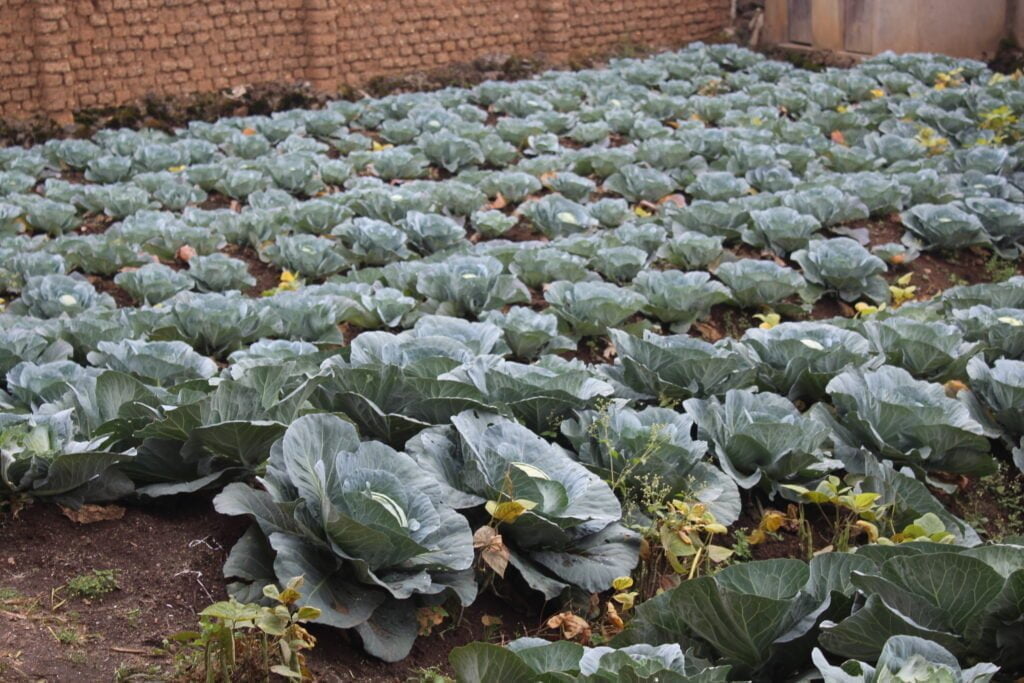Rwanda: Brokers Killing Vegetable Market

In the eve of COVID-19 pandemic invasion, Ildephonse Sinabubariraga, a journalist and farmer from Gicumbi district, Northern Province reaped huge from his cabbage farm.
Following Rwf 700,000 worth of investment in his three quarters of a hectare farming, Sinabubariraga harvested 8 tons of cabbage, first time since he started venture in agribusiness, ten years ago.
Little did Sinabubariraga know that it was not enough to get such bumper harvest, even though the market demand could be relatively fair; the middlemen or to say better, the brokers have a big hand in vegetable commercialization and can decide who sells, who does not.
After failing to grasp the first option to export to Uganda where he expected to earn nearly Rwf 1000 per unit due to transport trends, Sinabubariraga was left with only one bullet; to sell to Kigali.
He hired a truck and loaded it with the beautiful cabbage that were weighing nearly 5kilograms each. He had never seen such harvest before.
At 3AM, the truck transited to Nyabugogo, Rwanda’s busiest neighborhood and grocery hub, but the seller was surprised to see that of all the semi retailers who were gathered there waiting for vegetables, no one was interested to even ask him what was trending.
He tried to approach them but they all looked indifferent until other trucks arrived one hour later. They started sharing the little cabbage they were proposing.
Towards 5AM, Sinabubariraga asked for help, and a woman who offered to do something for him charged Rwf 10,000 and sent the truck to Kimisagara, another market at 20-minute drive.
“The lady recommended us to the buyers from Kimisagara market, but when we reached the market, they still didn’t look at us, same thing at Kimironko and Kabuga market,” Sinabubariraga said.
“I was expecting to earn at least Rwf 2.5 million from this investment, but you can imagine that I was obliged to even borrow little money to pay the truck because cabbage were wasted.”
This case highlights challenges vegetable growers in Rwanda face. According to the agricultural household survey, in 2020, amaranths emerged the most commonly produced vegetable type, accounting for 43.7 percent of agricultural households.
Cabbage followed closely behind at 30.1 percent, with tomato (25.6 percent), eggplants (24.2 percent), and carrots (14.6 percent) rounding out the top vegetable varieties produced by local agricultural households.
This data reflects the diversity of vegetables grown and the competitive nature of the market, where even staple crops like cabbage can face difficulties finding buyers.
Brokers or no deal
Sinabubarirarga’s case indicates how growing vegetables and accessing the market is dependent on the will of brokers.
“Wholesalers built a stronghold where a stranger to their system cannot grow vegetables and expect to go and sell to them,” Sinabubariraga said.
“The guys track every farm and know exactly which date you might harvest your vegetables. In case the country is out of season, they bring the money to you before the vegetables reach maturity.”
In other cases, however, Sinabubariraga said, they can accept to go and buy cheap in Rubavu in the extreme West while leaving the perishables near Kigali, like it was his case.
In Rubavu district, the story of Mukamakuza Martha goes in the opposite corner of Sinabubariraga’s.
Mukamakuza 60, is a vegetable farmer who grows onions, carrots, beets and cabbage. She is also a member of Kotimanya, a local cooperative consisting of 186 members.
The mother of five narrates how recently she received three times the interest on her investment in cabbage produce.
“I invested Rwf 70,000. Brokers found me at home and gave me Rwf 220,000. You cannot tell how they get to know about your produce,” she said.

“When you refuse to sell to them, they go back and mislead everyone who would come to buy from you; they tell them that your vegetables were already sold to others who are awaiting to come and harvest. The produce will rot in the farm,” she said.
It’s Illegal-Ministry of Trade and Industry
According to the Ministry of Trade and Industry-MINICOM vegetable brokers also known as middlemen are illegal.
The Commodity Value Chain Trade Specialist at MINICOM, Dativa Mukaniyonzima said that they are working hard to stop the practice of brokers in this area, but whoever involves them in the business is also liable.
“Brokers are absolutely prohibited, and any farmer who collaborates with them is directly implicated,” she said.
Mukaniyonzima further explains that the price of vegetables is determined by the market itself, the principle of demand and supply and cannot have fixed price as it works for other crops like irish potatoes.
“We fix prices for some senzitive crops which need stabilization,” Mukaniyonzima said in response to those who claim that brokerage in the perishable market is exacerbated by lack of price harmonization.
To help vegetable farmers find markets, MINICOM suggests that schools in their areas purchase vegetables for the school’s restaurant. They also encourage farmers to register on e-commerce platforms where they can sell their produce directly without the involvement of middlemen.
Currently in Rwanda, there are two e-commerce platforms that purchase produce from farmers at market prices. Approximately 16,000 farmers have already registered on one of these e-commerce platforms.
MINICOM states that it continues to provide training to farmers on how these platforms work, with the aim of eliminating middlemen who can burden the farmers looking forward to further development.
Nadine Umuhoza

